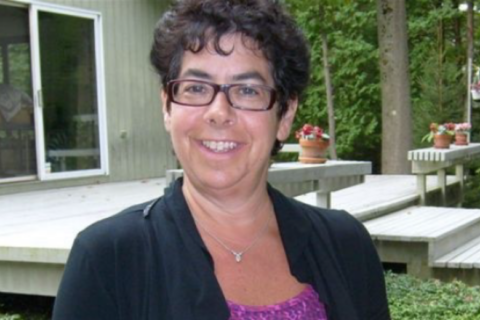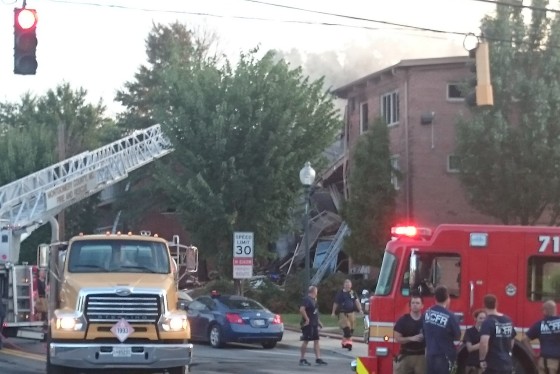A settlement has been reached with Washington Gas over the deadly 2016 explosion at the Flower Branch Apartments in Silver Spring, Maryland.
The terms and conditions of the settlement, which was reached on Friday, are confidential, according to Washington Gas spokesman Brian Edwards.
“The matter has been resolved to the mutual satisfaction of all parties involved in litigation, and now we’re moving forward,” Edwards said.
On Tuesday, the Maryland Public Service Commission held a show-cause hearing related to Washington Gas’ role in the explosion on Aug. 10, 2016.
Edwards said the hearing was about respect and support for the community and a chance to give the community and the Maryland Public Service Commission a chance to hear what happened.
Seven people were killed and 65 were sent to the hospital following the explosion. A group representing the victims sued Washington Gas and Kay Apartment Communities, the company that manages the complex, in November 2016.
The probable cause of the explosion, according to the National Transportation and Safety Board, was “the failure of an indoor mercury service regulator, with an unconnected vent line, that allowed natural gas into the meter room, where it accumulated, and ignited from an unknown ignition source.”
According to a filing in September by the Maryland Public Service Commission, Washington Gas had pledged in 2003 to replace nearly 67,000 mercury regulators in 10 years; and it asked the utility to answer for its perceived inaction.
Del. Lorig Charkoudian, who represents the area, said the most devastating thing that emerged was how preventable the explosion was.
Charkoudian said Washington Gas was supposed to have replaced the mercury regulators between 2003 and 2013, and got approval to raise rates in order to do that, having convinced the public service commission that replacing them was necessary.
“If it was necessary to replace them in 2003, then they should have been replaced. And they weren’t,” Charkoudian said. “If they had done what they said they were going to do to the PSC in 2003, they would have been replaced by 2013 and the explosion wouldn’t have happened.”
Washington Gas said it has continued to replace mercury regulators across the system, but did have to shift to other higher-priority work dealing with more urgent gas leaks in Prince George’s County in 2008.
“But we continue to replace mercury regulators in the system, and we continue to do that today,” Edwards said.
Charkoudian wants Washington Gas to be held accountable to replace the regulators at the cost of the company and its shareholders, and she has several pieces of legislation related to this.
The accountability and the justice are important pieces of healing, and also looking at changes in structure and infrastructure to keep people safe going forward, Charkoudian said
Months before the explosion, the smell of natural gas had been reported to apartment management, but staff either did not detect the smell or attributed it to paint, according to the NTSB.
Three years after the explosion, tenants of the complex said back in May that they have since smelled gas, and they urged action to prevent another tragedy.
Kieran Prospere and his family were involved in the settlement. On the night of the explosion, he felt the bed shake and saw the fire outside. He woke his wife and children and got out of their home.
His wife was traumatized and has been in therapy because of what happened he said.
He and his family still live in Flower Branch Apartments. He said that eight weeks ago, his wife told him that there was a strong smell of gas in their apartment. It turns out that gas was leaking due to a bad connection between the stove and the pipe, he said.
And two weeks before that, he said he entered the apartment building and immediately got a headache due to the strong smell of gas. He said he knocked on his neighbors’ doors and everyone got out. The fire department came and measured the gas in the air, and Washington Gas was called to shut down the gas, Prospere said.
Edwards said that Washington Gas has upgraded all of the facilities and infrastructures within the community and it continues to serve the community well.
“We urge all residents should they think they smell natural gas to call 911 and to call 844-WASHGAS,” Edwards said.
WTOP’s Michelle Basch contributed to this report.









